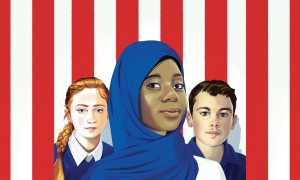text
Informational
The Day I Swam Into a New World
Frances dreams of swimming with her classmates, but will everyone be welcome at her new community pool?
August 6, 2015
Last week, a 7-year-old black boy came home from school with a realistic-looking gunshot wound painted on his forehead—by his drama teacher. The image understandably alarmed his mother. And it reminds us of the harm educators inflict when they insist they "don't see race." We hope you'll read and share these recommendations for protecting, respecting and celebrating the identities of your black students.
